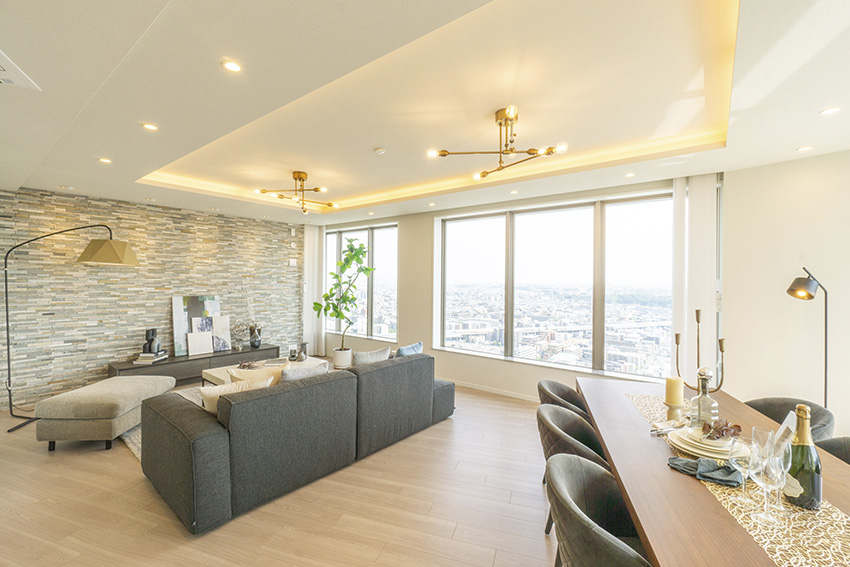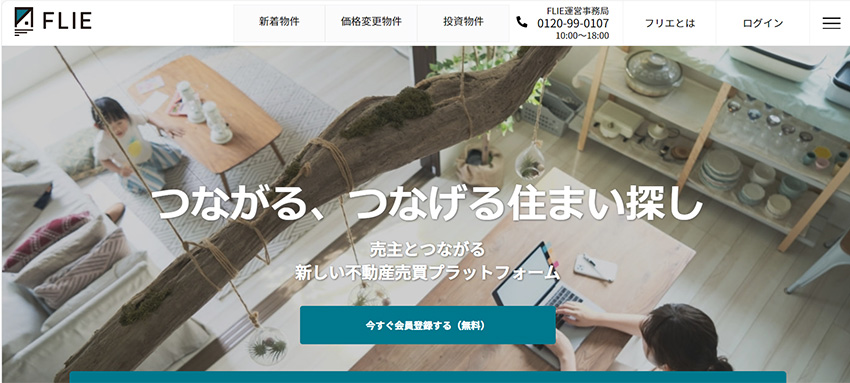By navigating the dynamic currents of the real estate market, Intellex is beacon to enhanced profitability.

Bolstered by low interest rates and the lifting of COVID restrictions, Japanese land prices jumped at the fastest rate in 15 years, leading into 2023, and during this period, foreign buyers were attracted to Japan by that performance and the weakening of the yen. 25% of all real estate transactions in Japan were from foreign buyers. Considering the global macroeconomic environment, why is Japan so attractive to foreign buyers for real estate investment?
Japan’s real estate market is highly attractive to foreign investors for several reasons. Firstly, Japan’s longstanding policy of maintaining low interest rates plays a significant role. Even though the negative interest rate policy has shifted, it is widely believed that rates will not exceed 1%. This belief stems from the fact that 99% of Japanese companies are small and medium enterprises, making a significant rate hike that could harm these businesses unlikely. To avoid negative impacts on the Japanese economy, the Bank of Japan is expected to gradually, rather than suddenly, adjust interest rates. Additionally, the net operating income (NOI) yield in major cities like Tokyo remains relatively high compared to Singapore and Taiwan. This makes Japanese real estate particularly appealing for investors seeking better returns.
Further, geopolitical factors also enhance Japan’s attractiveness. With the noticeable capital flight from China, many foreign investors perceive the Chinese market as risky. This shift has driven more capital towards the relatively stable and promising Japanese market.
There has been a recent shift in real estate investment towards Japan. Previously, properties were mainly purchased for capital gain or rental income purposes. However, in recent years, there has been a notable increase in buyers from Asia purchasing residential properties for living purposes. A professor from Waseda University noted that there is a growing trend of students, particularly from China, choosing business schools in Japan over those in the United States. Consequently, it has become common for these students’ parents to purchase homes not as investments but as residences for their children. These factors collectively make Japan an attractive destination for foreign real estate investors.
Considering the current landscape of Japan's real estate market, what are the main risks that foreign investors perceive, and how might these risks impact the market over the next one to two years? Specifically, what are your concerns about rising interest rates, the bullish market leading to potential oversupply, and the implications of increased material costs on the luxury housing segment?
In 2016, the number of real estate transactions for pre-owned condominiums surpassed those for new builds. Since then, the market has seen more pre-owned condominiums and increased sales contracts for these properties compared to new builds. Developers focusing on new construction are shifting towards more lucrative luxury projects to compensate for rising construction costs. This is especially true for major developers like Mitsubishi, Mitsui, Nomura, Tokyu Fudosan, and Tokyo Tatemono, who dominate high-end luxury housing, where higher prices lead to higher sales.
The primary purchasers of these luxury properties are high-net-worth individuals, including foreign investors taking advantage of the depreciated yen. Other buyers include Japanese residents looking to use real estate to reduce inheritance taxes and businesses looking for stable rent income. Since luxury housing is targeted to these specific groups, there does not seem to be an oversupply in the general residential market in central Tokyo. However, Japan faces risks such as a drop in stock prices, appreciation of the yen, and natural disasters like earthquakes. The key question is how the market would react if any of these events occur.
I would like to talk about the demand for renovation because it’s a core part of your business. You mentioned that the pre-owned market has outpaced the new condominium market since 2016. If we talk about large cities like Osaka and Tokyo, they’re enjoying a population increase, whether from older people moving to cities for health care services or, as you mentioned, students coming here to study. How do you expect the demand for renovation to evolve in these major cities in Japan amidst population changes and economic activity?
We focus on the pre-owned condominium market, which comprises a total stock of 6.9 million units. In our 30-year history, we have renovated 27,000 units. Today, Intellex operates branches in Tokyo, Yokohama, Osaka, Sapporo, Sendai, Hiroshima, Nagoya, and Fukuoka. Strategically, it is crucial for us to identify the best areas for business. Population and economic activities are naturally concentrated in major regional cities. Therefore, it is essential for us to operate in these growing regional cities with an existing condominium stock. This allows us to identify and secure the best renovation opportunities in each area.

Intellex Condominium
You also have your Solution Business, where you optimize asset utilization for your clients, providing long-term value through your Leaseback and Asset Sharing services. Can you explain the synergies between the Solution Business and the Renovation Business and how they complement each other?
Our Renovation Business primarily targets a broad demographic rather than focusing on high-net-worth individuals. Our target market seeks quality enhancements at reasonable costs. Some of our projects involve condominiums priced over JPY 100 million – still within reach for dual-income couples with high disposable incomes today. In contrast, our Solution Business offers a leaseback model. This service allows homeowners to sell homes and continue living in them as renters. This service provides financial flexibility and benefits seniors transitioning to retirement facilities. We generate revenue by renovating and reselling properties once tenants vacate them.
Additionally, we also offer an Asset Sharing Series, which was launched in response to the revision of Japan’s inheritance tax law in 2015. This service allows for fractional ownership of a single property, eliminating the hassle of property management while enabling real estate ownership at a lower cost. It supports asset management by leveraging the disparity between the market value and assessed value to reduce gift and inheritance tax. This service effectively meets the needs of affluent individuals by providing solutions for inheritance division and addressing the need to mitigate tax burdens associated with high-value properties.
These businesses synergize by meeting diverse customer needs - from renovation and property retention to tax-efficient asset management – while leveraging our expertise in property acquisition, enhancement, and market reintegration.
Your FLIE real estate trading platform has gained recognition for its direct buyer-seller model and innovative features like smart lock systems. Could you explain FLIE's genesis in response to changing real estate dynamics in Japan and how it addresses the need for transparency and efficiency in property transactions?
The inception of FLIE stems from the evolving dynamics of real estate transactions in the digital age. Potential buyers can easily access information about the average prices of pre-owned condominiums online, and there has been a notable increase in direct transactions. Reflecting on these changes, we questioned the traditional role of brokers and recognized a growing demand for specialized knowledge, particularly regarding renovation details.
Intellex ventured into this space by leveraging our extensive renovation expertise. FLIE showcases properties that have undergone renovations, not limited to our own but also those from other companies. Our platform aims to enhance transparency in property transactions, filling the gap where detailed information on renovated properties was previously lacking.

FLIE
FLIE not only facilitates direct connections between buyer and seller but also appeals to its efficient solutions. For instance, our technology allows potential buyers to view a property without a broker present independently through Smaview, our smart lock system. This innovation also addresses challenges brokers find in managing property viewings amid staffing shortages. Following a visit, a potential buyer can seamlessly finalize the purchase process.
Lastly, FLIE plays a crucial role is data aggregation and analysis. By gathering insights into customer preference, renovation preferences and renovation priorities, we tailor our renovation strategies to meet market demands effectively.
How does your focus on the energy-efficient renovation product Ecocube complement FLIE's offerings, and what strategic developments do you foresee for the platform to expand its impact and features in the market?
Our focus on Ecocube, a renovation product designed to enhance energy efficiency and reduce utility costs in condominiums, complements FLIE's offerings by providing significant value to our customers. By calculating energy consumption performance, insulation performance, and estimated utility costs, we can clearly demonstrate the significant advantage of energy-efficient renovations, which is highly convincing to our customers. Our approach extends beyond a one-time transaction. We are committed to providing holistic services providing ongoing support even after our customers move into their condominiums. Our after-service is designed to ensure their comfort and satisfaction for an extended period.
Given your focus on Ecocube and its specialization in energy-efficient condominium renovations, how do you address the cost concerns associated with these energy-efficiency projects? Japan's traditional scrap-and-build policy has faced criticism for its environmental impact, and while many consumers and investors recognize the environmental benefits of renovations, they are often deterred by the costs. In markets such as the US or Europe, government subsidies make these renovations more affordable. How do you convince investors and the public of the advantages of energy-efficient, renovated buildings in Japan?
This year, the Japanese government introduced energy efficiency labeling for new residential buildings. From next year, energy efficiency standards for new builds will become mandatory. However, there are currently no established standards for energy-efficient renovations. Our chairperson, Mr. Yamamoto, initiated the Renovation Council in 2009, comprising 800 registered companies specializing in renovations. The Renovation Council is actively drafting standards for these renovations, focusing on energy efficiency and environmental friendliness. We are actively involved with the Renovation Council to inspire the industry to embrace energy-efficient renovations. Through our Ecocube projects, we demonstrate the tangible benefits of these renovations, fostering wider adoption and setting new benchmarks for energy efficiency and environmental responsibility. Using data to illustrate cost savings and environmental benefits, we make a persuasive case to investors and the public. Our goal is to show that investing in energy-efficient renovations is not only beneficial for the environment—it is a sound economic decision for the future.
You transitioned from the Prime market to the Standard market last year due to market capitalization and transaction volume considerations. Could you elaborate on your current strategy for communicating with investors, especially regarding your focus on the domestic market and potential future plans to reevaluate your market listing?
To be honest, our primary focus is on the domestic market, and complying with the demands of the Prime market has posed a challenge for us. Therefore, we decided to transition to the Standard market, focusing on our core businesses of renovation and asset sharing.
Currently, we are laying a solid foundation and observing the Japanese government’s movement towards integrating energy efficiency standards into renovation practices and providing subsidies for these initiatives. As these policies solidify and our financial footing strengthens, we may reconsider entering the Prime section. I prefer a cautious approach, ensuring all aspects are well-prepared step by step.
While we remain open to engaging with overseas investors, our market cap and liquidity often categorize us as micro-cap. Hence, it is crucial for us to consolidate and fortify our fundamentals to attract more international interest.
Please imagine that we will interview you again in 2030. What objectives or ambitions would you like Intellex to achieve by then?
When you return in 2030, I hope to say that we are the leading renovation company in Japan. By then, we aim to have expanded to Asia and other regions worldwide with increasing renovation needs. Instead of prioritizing sales numbers, I want to emphasize the quality of our service and the number of highly sought-after renovation properties we can deliver.
For more information, visit their website at: https://www.intellex.co.jp/company/en/ir/
0 COMMENTS